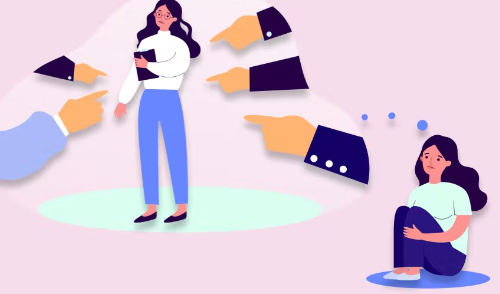Most people don’t realize that the largest age group that suffers from depression is between 18 and 29. Although it is the highest is young adults, it is likely to be less severe. There are many different reasons people have depression, and many people don’t talk about it, so when reading this think about how people might be going through something like this.
The CDC data says from 2019, 21% of adults experience any depressive symptoms. In 2020, approximately 12% of adolescents ages 12 to 17 had a depressive episode severe enough to cause a significant impairment. The reasons for it in children and adolescents are family history, adverse life events, negative bias about their abilities, poor sleep, hormone changes, and comorbid disorders, both physical and psychological. Comorbid disorders are when there are two or more disorders in the same person. In young and middle adulthood the risk factors are family history, adverse childhood experiences, a lower level of education, living alone (in younger adults), lower income, smoking, and limited physical activity. In older adults the risk factors are loss of a spouse or partner, having chronic conditions, poor physical health, loneliness, low economic status, low education level, and living alone.
If you are looking for ways to help depression, you can be more active. It doesn’t really matter what form of exercise you do but information from www.nhs.uk says “there’s evidence that exercise can help lift your mood.” It also says don’t drink too much alcohol. “You may drink more than usual as a way of coping with or hiding your emotions, or just fill time.” Also alcohol could make you more depressed. Having a routine is another way to help. Try to get into a normal routine as possible like eating, sleeping, not staying up late and don’t sleep during the day.
If you want help talk to a therapist or take antidepressants, but note – there can be a lot of side effects of antidepressants. According to www.mind.org.uk, antidepressants can decrease your alertness, and cause diabetes, headaches, nausea or feeling sick, and suicidal feelings. This is why it is important to be connected to a therapist or doctor if your condition warrants taking antidepressants.
So if you’re feeling down or depressed try getting active and go for a run, lift some weights – you know get strong. Nevertheless if your self-help measures do not seem to be working, then it is important for you to find professional help.
If you find you are experiencing depressive episodes that are interfering with your life, please contact Ms. Wright in the guidance office to find out about local resources that can help you.




